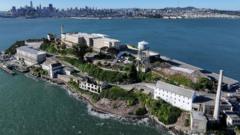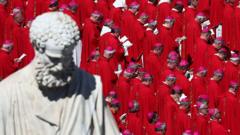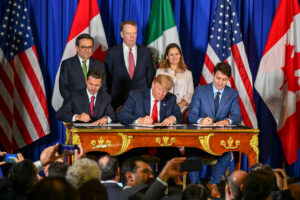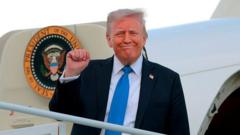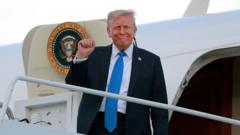As Canada holds its national elections, President Trump’s provocative comments have elicited varied reactions from political leaders and citizens alike, reflecting tensions surrounding sovereignty and national identity.
Trump's Intrusion on Canadian Politics Sparks Debate Amid Election Day

Trump's Intrusion on Canadian Politics Sparks Debate Amid Election Day
President Trump Continues to Promote Canada as Potential US State as Citizens Vote
As Canadians headed to the polls for their critical national election, President Donald Trump made headlines by reiterating his long-standing notion that Canada should become the “51st state” of the United States. In a post on Truth Social, Trump urged Canadians to “vote for the man” who would facilitate their country's integration into the U.S., framing his message amidst an already charged political atmosphere.
Trump, who has long been critical of Canada’s sovereignty and frequently suggested that the borders are “artificially drawn,” asserted that Canada's resources and beauty should be united with the U.S. This rhetoric comes after years of economic strain imposed by his tariffs, which have raised concerns about Canada’s economic stability. The climate has fueled a surprising resurgence for the Liberal Party, traditionally at odds with the Conservatives, whose leader, Pierre Poilievre, has been closely aligned with Trump ideologically.
Reports indicate a divided interpretation of Trump’s comments. While some observers discerned a potential endorsement for Poilievre, others contended that the remarks might inadvertently bolster the Liberal Party’s Mark Carney, who has campaigned explicitly against the Trump administration's approaches. As Canadians aim to assert their political autonomy, reactions from both candidates were quick to emerge.
Conservative leader Pierre Poilievre firmly rejected Trump’s interference, emphasizing that it is solely up to Canadians to dictate their future, asserting pride in their sovereignty. Poilievre's statement on social media clarified his commitment to an independent Canada, urging citizens to stand strong against external pressures.
In contrast, Prime Minister Mark Carney, who positioned his campaign on an anti-Trump agenda, also took the opportunity to underscore the importance of Canadian independence without directly addressing Trump’s comments. Carney's messaging was aimed at reinforcing national agency during a politically charged election.
Overall, the dynamics of the election have been complicated by the U.S. president's provocative remarks, prompting discussions about Canadian independence and the future of its political landscape in direct relation to American influence. The newly elected Canadian government will undoubtedly face the task of navigating a complicated relationship with a leader who remains fixated on the notion of Canadian integration into the U.S.

